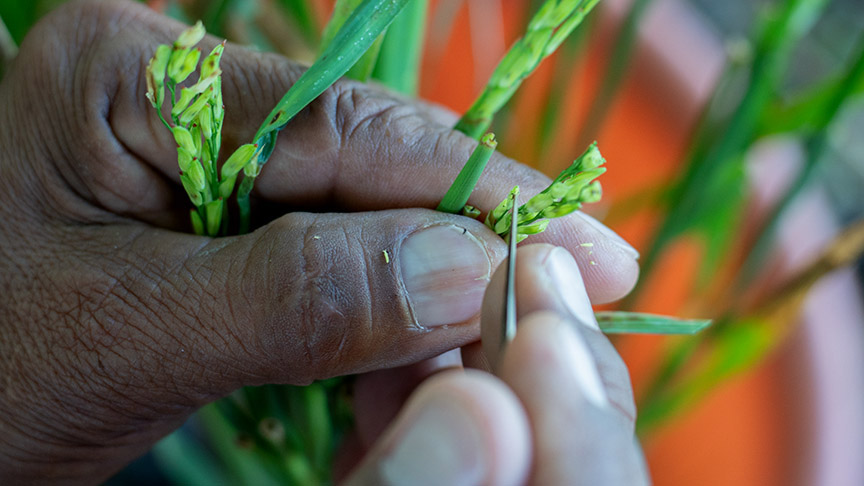ILIGAN CITY (MindaNews / 19 October) – The coronavirus disease (COVID-19) would increase the world’s undernourished people by 132 million more by the end of the year, from the 690 million in 2019.
This was the assessment of Normita Ignacio, executive director of the Southeast Asia Regional Initiatives for Community Empowerment (SEARICE), during a webinar for farmers Friday last week during the commemoration of World Food Day.
“In spite of the value we attach to food and food security, the number of hungry people continues to rise, and this pandemic has worsened the situation,” Ignacio said during the Zoom discussion dubbed “From Diversity to Security: Our Farms, Our Food, Our Health” initiated by the Filipino Farmers’ Seed Network (FFSN) Inc.
She stressed that “the state of food security and nutrition even before the outbreak of COVID-19 was already alarming” because of the “destructive processes” involved in the production of food.
“Obviously, focusing our attention solely on increasing agricultural productivity, we could never solve the problem of hunger and malnutrition,” Ignacio pointed out, suggesting the urgent need to transition to sustainable and resilient food system.
Farmers tasked to do presentations recommended different approaches to food security.
“Food security means farmers have ready access to adequate quantities of quality seeds and planting materials that are adapted to their agro-ecological conditions,” said Engr. Rene Garcia, chairman of the Braulio E. Dujali Organic Practitioner and Rural Workers Association (BEDOPARWA) based in Davao del Norte.
 By breeding their own rice varieties, farmers say they can have access to seeds that are more apt to their environment. MindaNews file photo by BOBBY TIMONERA
By breeding their own rice varieties, farmers say they can have access to seeds that are more apt to their environment. MindaNews file photo by BOBBY TIMONERA
FFSN chair Ramel Tandoy pushed for farmers to veer away from hybrid seeds and instead focus on varieties developed locally, which he said are more apt for their respective localities.
“There are now many of us farmer breeders who have developed at least 50 varieties each, based on our own informal research and experiments,” he said.
James Dulay, municipal agriculture officer of Arakan in North Cotabato, said that their council, through an ordinance, has created a seed registry of local and traditional rice varieties.
“This is to protect our resources so it won’t be pirated or monopolized by institutions that wanted to own the seeds,” he said.
Municipal Ordinance No. 371, passed in 2017, thus funded the creation of municipal and barangay seed banks, Dulay said.
The ordinance, he added, also institutionalized the promotion of organic and diversified farming and the establishment of learning farms, among others.
Girlyn Pacalioga, who oversees operations of the 2.5-hectare Umaleng Farm in Dumingag, Zamboanga del Sur, said that because of their organic and diversified approach at farming, it was as if normal times for them in the farm despite the pandemic.
“We have the ability to provide food despite the strict lockdowns,” she said in her PowerPoint presentation.
She showed pictures of their red and black rice varieties in the farm, their livestock and fishpond, organic garden and a mini-forest, their seed bank and compost. They are also producing organic soap that is selling well online, helping them provide scholarships to children of farmers.
To sell their vegetables, Pacalioga said they have established an “honesty store,” wherein they display their produce by the roadside unattended, and the buyers just leave their money in a box.
“We are happy to find out that people are still honest,” she smiled. “It is so apt to the call for physical distancing because we don’t need to be near our buyers,” Pacalioga added.
Dr. Jaime Galvez-Tan, former health secretary and now chair of the Health Future Foundation, Inc., made a presentation focusing on the nutritious vegetables and fruits available locally, and advised farmers to focus growing them.
